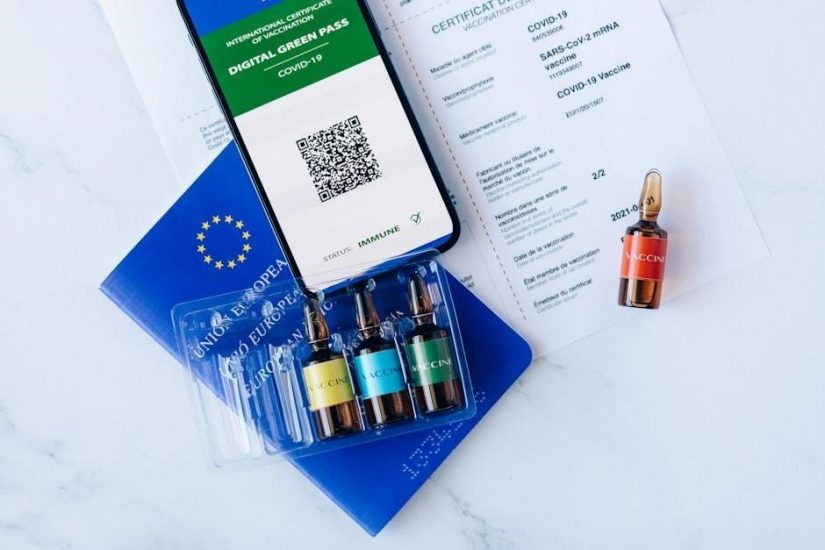CompTIA Security+ SY0-701 certification is a globally recognized credential validating IT professionals’ expertise in cybersecurity fundamentals‚ risk management‚ and security best practices. The certification guide provides comprehensive resources‚ including study materials‚ exam strategies‚ and practice questions‚ to help candidates master essential security concepts and pass the exam confidently.

Exam Overview
The CompTIA Security+ SY0-701 exam evaluates foundational cybersecurity knowledge‚ covering network security‚ threats‚ vulnerabilities‚ and risk management. A passing score of 750/900 is required‚ with preparation guides offering structured study resources to ensure readiness.
Key Features of the SY0-701 Exam
The SY0-701 exam is a multiple-choice and performance-based assessment‚ lasting 90 minutes with 90 questions. It requires a passing score of 750/900‚ testing knowledge of network security‚ vulnerabilities‚ and risk management. The exam evaluates hands-on skills‚ ensuring practical application of security concepts. Performance-based questions simulate real-world scenarios‚ assessing problem-solving abilities. The certification is vendor-neutral‚ making it widely applicable across IT environments. Candidates must demonstrate understanding of security frameworks‚ incident response‚ and data protection. The exam format ensures a comprehensive evaluation of both theoretical knowledge and technical expertise‚ aligning with industry standards for entry-level cybersecurity professionals.
Exam Objectives and Domains
The CompTIA Security+ SY0-701 exam is designed to validate essential skills in IT security‚ focusing on risk management‚ vulnerabilities‚ and data protection. The exam objectives are divided into five main domains‚ each covering critical areas of cybersecurity. These domains include Network Security‚ Threats and Vulnerabilities‚ Security Operations‚ Security Controls‚ and Security Architecture and Design. Candidates are expected to demonstrate the ability to implement secure networks‚ assess risks‚ and mitigate threats. The exam also emphasizes practical skills‚ such as incident response and security policy enforcement. By mastering these domains‚ professionals can effectively secure systems‚ networks‚ and data in various IT environments. The certification is ideal for entry-level cybersecurity roles‚ ensuring a strong foundation in industry-standard security practices.
Passing Score and Exam Format
The CompTIA Security+ SY0-701 exam requires a passing score of 750 out of 900. The exam consists of up to 90 questions‚ including multiple-choice‚ drag-and-drop‚ and performance-based questions. Candidates have 90 minutes to complete the exam. The format is designed to test both theoretical knowledge and practical skills‚ ensuring candidates can apply security concepts in real-world scenarios. The exam is available in English and is proctored in person or remotely. To succeed‚ candidates must demonstrate proficiency in all exam domains‚ as the weighted scoring reflects the importance of each topic. Proper time management and understanding of question types are crucial for achieving the required score.

Exam Domains and Objectives
The CompTIA Security+ SY0-701 exam is divided into five domains‚ covering network security‚ threats‚ security operations‚ controls‚ and architecture. Each domain focuses on specific skills and knowledge areas‚ ensuring a comprehensive understanding of IT security concepts and practical applications. This structure helps candidates prepare effectively and aligns with industry standards for security professionals.
Domain 1: Network Security
Domain 1 covers essential network security concepts‚ including protocols‚ devices‚ and security measures. It focuses on understanding TCP/IP‚ DNS‚ DHCP‚ and network segmentation. Candidates learn about firewalls‚ intrusion detection/prevention systems‚ and VPNs. Key topics include securing wireless networks‚ implementing encryption protocols like HTTPS and SSH‚ and managing network access control. This domain also emphasizes understanding network attacks‚ such as man-in-the-middle and DoS attacks‚ and how to mitigate them. Hands-on skills‚ like configuring firewalls and troubleshooting network security issues‚ are critical. Mastery of these concepts ensures a strong foundation in protecting network infrastructure and data transmissions‚ aligning with real-world security challenges.
Domain 2: Threats‚ Vulnerabilities‚ and Mitigations
Domain 2 focuses on identifying and mitigating various threats and vulnerabilities. It covers types of malware‚ such as viruses‚ worms‚ ransomware‚ and Trojans‚ as well as attack methods like phishing‚ social engineering‚ and DDoS attacks. Candidates learn about common vulnerabilities‚ including buffer overflow‚ SQL injection‚ and cross-site scripting (XSS). The domain emphasizes mitigation techniques‚ such as patch management‚ firewalls‚ intrusion detection/prevention systems‚ and secure coding practices. Understanding risk assessment and vulnerability scanning tools is also crucial. This domain prepares learners to analyze threats‚ prioritize vulnerabilities‚ and implement effective countermeasures to safeguard systems and data. Mastery of these concepts is vital for real-world threat detection and response scenarios.
Domain 3: Security Operations
Domain 3 covers the essential tasks and processes involved in maintaining an organization’s security posture. It focuses on incident response‚ disaster recovery‚ and security monitoring. Candidates learn about security information and event management (SIEM) systems‚ log analysis‚ and network traffic monitoring. The domain also emphasizes risk assessment‚ vulnerability management‚ and the implementation of security policies. Key topics include continuous monitoring‚ security awareness training‚ and the use of tools like intrusion detection systems (IDS) and intrusion prevention systems (IPS). This domain prepares learners to handle real-world security operations‚ ensuring they can respond effectively to incidents and maintain organizational security. Understanding these concepts is crucial for managing day-to-day security tasks and ensuring compliance with security frameworks and best practices.
Domain 4: Security Controls
Domain 4 focuses on the implementation and management of security controls‚ which are critical for protecting organizational assets. It covers technical‚ administrative‚ and physical controls designed to mitigate risks. Key topics include access control mechanisms‚ such as RBAC (Role-Based Access Control) and DAC (Discretionary Access Control)‚ as well as authentication methods like multi-factor authentication (MFA). The domain also addresses encryption technologies‚ physical security measures‚ and compliance with industry standards. Understanding how to evaluate‚ implement‚ and monitor these controls is essential for maintaining a secure environment. This domain prepares candidates to design and enforce robust security policies‚ ensuring alignment with organizational goals and regulatory requirements while safeguarding sensitive data and systems.
Domain 5: Security Architecture and Design
Domain 5 focuses on the design and architecture of secure systems‚ emphasizing the importance of building security into the foundation of IT infrastructure. It covers fundamental security models‚ such as the Ring of Protection and Trusted Computing Base‚ as well as secure design principles like separation of duties and least privilege. The domain also explores security frameworks‚ cryptography‚ and the implementation of secure communication protocols. Understanding how to architect systems with security in mind is crucial for preventing vulnerabilities and ensuring data integrity. This domain prepares candidates to design robust‚ scalable‚ and secure systems aligned with industry best practices and organizational security goals.

Study Guides and Resources
Utilize official CompTIA study guides‚ online courses‚ and free resources to prepare for the SY0-701 exam‚ ensuring comprehensive coverage of all exam domains and objectives effectively.
Official CompTIA Study Guides
Official CompTIA study guides for the SY0-701 exam are essential resources‚ providing in-depth coverage of all exam objectives. Authored by CompTIA experts‚ these guides ensure alignment with the certification requirements‚ offering detailed explanations‚ real-world examples‚ and practical applications. They cover critical topics such as network security‚ vulnerabilities‚ risk management‚ and security operations. The guides are structured to help candidates build a strong foundation‚ with clear language and organized content. Additional resources‚ like review questions and glossaries‚ reinforce learning. Available in print and digital formats‚ these guides are versatile for different learning styles. They are widely regarded as the most authoritative preparation materials‚ making them a must-have for anyone aiming to pass the SY0-701 exam successfully.
Recommended Training Courses
Recommended training courses for the CompTIA Security+ SY0-701 exam are designed to deepen understanding and practical skills. Platforms like Udemy‚ Coursera‚ and LinkedIn Learning offer comprehensive courses aligned with exam objectives. These courses cover key domains such as network security‚ vulnerabilities‚ and risk management. Many include hands-on labs‚ video tutorials‚ and interactive simulations to enhance learning. Expert instructors guide students through real-world scenarios‚ ensuring practical application of concepts. Additionally‚ platforms like Pluralsight provide in-depth training tailored to the SY0-701 curriculum. These courses are ideal for learners who prefer structured‚ instructor-led preparation. By combining these courses with the official study guide‚ candidates can gain a well-rounded understanding of the material and improve their exam readiness.
Free Online Resources and Study Materials
Free online resources and study materials are widely available to help candidates prepare for the CompTIA Security+ SY0-701 exam. CompTIA offers free study guides and practice questions on their official website‚ providing a solid foundation for exam preparation. Additionally‚ websites like Reddit’s r/CompTIA community and forums.comptia.org offer valuable insights‚ tips‚ and resources shared by certified professionals; YouTube channels such as Professor Messer provide free video tutorials covering key exam topics. Free practice exams are also available on platforms like FreeCodeCamp and Exam-Labs‚ allowing candidates to assess their knowledge and identify weak areas. These resources‚ combined with dedication‚ can significantly enhance exam readiness without additional costs.

Preparation Strategies
Develop a structured study plan‚ set realistic goals‚ and practice consistently. Utilize official guides‚ online courses‚ and practice exams to reinforce knowledge. Stay focused and persistent in your efforts.
Creating a Study Plan
A well-structured study plan is essential for success in the CompTIA Security+ SY0-701 exam. Begin by identifying your weaknesses and allocate time accordingly. Divide your study schedule into weekly goals‚ ensuring consistent progress. Dedicate specific days to each domain‚ such as Network Security or Threats and Vulnerabilities. Incorporate active learning techniques like flashcards for memorizing key terms and lab exercises for hands-on practice. Track your progress using a checklist or planner to stay organized. Allow time for regular reviews and practice exams to assess readiness. Adjust your plan as needed to address challenging areas. Consistency and adaptability are key to mastering the exam material effectively.
Practicing with Sample Questions
Practicing with sample questions is a critical step in preparing for the CompTIA Security+ SY0-701 exam. It helps you familiarize yourself with the exam format‚ question types‚ and time management. Utilize official practice exams or reputable third-party resources to simulate real-world scenarios. Focus on understanding the reasoning behind correct answers and analyzing your mistakes. Regularly reviewing sample questions improves your problem-solving skills and boosts confidence. Additionally‚ track your progress to identify weak areas requiring further study. Incorporate timed sessions to enhance your ability to complete the exam within the allotted time. Consistent practice ensures you are well-prepared for the challenges of the actual test.
Understanding Key Concepts
Understanding key concepts is essential for success in the CompTIA Security+ SY0-701 exam. Focus on grasping foundational principles rather than memorizing facts. Relate new information to your existing knowledge to enhance retention. Use analogies and mental models to simplify complex topics. Practical application of concepts‚ such as configuring firewalls or implementing encryption‚ reinforces theoretical knowledge. The exam emphasizes understanding over rote memorization‚ so prioritize comprehension. This approach improves problem-solving skills and critical thinking‚ which are crucial for scenario-based questions. By mastering key concepts‚ you’ll build a robust foundation for tackling advanced topics and achieving certification.

Key Knowledge Areas
The CompTIA Security+ SY0-701 certification covers critical areas such as security fundamentals‚ risk management‚ data protection‚ and security policies‚ ensuring a comprehensive understanding of cybersecurity principles.
Security Fundamentals
Security fundamentals form the foundation of the CompTIA Security+ SY0-701 exam‚ covering essential concepts such as the CIA triad (confidentiality‚ integrity‚ and availability)‚ security policies‚ and basic risk management. Candidates learn about common attack types‚ including malware‚ phishing‚ and social engineering‚ as well as the importance of authentication methods like multifactor authentication. Key topics also include network security basics‚ such as firewalls‚ intrusion detection systems‚ and secure protocols like HTTPS and SSH. Understanding these principles is critical for building a strong cybersecurity posture and addressing real-world threats effectively. Grasping these fundamentals ensures a solid base for advanced security topics covered in the certification.
Risk Management and Vulnerability Mitigation
Risk management and vulnerability mitigation are central to the CompTIA Security+ SY0-701 exam‚ focusing on identifying‚ assessing‚ and reducing security risks. Key concepts include risk assessment methodologies‚ such as qualitative and quantitative analysis‚ and vulnerability scanning tools to detect weaknesses. Mitigation strategies cover patch management‚ secure coding practices‚ and implementing firewalls. Candidates also learn about penetration testing and ethical hacking to uncover vulnerabilities. Understanding frameworks like NIST and ISO 27001 is crucial for structured risk management. Additionally‚ topics include incident response planning and the use of compensating controls. Mastering these areas helps professionals effectively safeguard systems and data‚ ensuring compliance with security best practices and standards.
Data Protection and Encryption

Data protection and encryption are vital for safeguarding sensitive information in the CompTIA Security+ SY0-701 exam. Encryption methods include symmetric (e.g.‚ AES) and asymmetric (e.g.‚ RSA) algorithms‚ ensuring confidentiality and integrity. Key management is critical‚ covering generation‚ distribution‚ and storage. Data protection extends to protocols like TLS for secure communication and VPNs for encrypted data transmission. Backup strategies and data loss prevention (DLP) are also emphasized to prevent unauthorized data access or breaches. Understanding encryption types‚ such as full-disk and file-level encryption‚ is essential. Additionally‚ hashing algorithms like SHA-256 are discussed for data integrity verification. These concepts help professionals implement robust security measures to protect data at rest and in transit‚ aligning with industry best practices and compliance standards.
Security Policies and Compliance
Security policies and compliance are fundamental to maintaining organizational security standards. The CompTIA Security+ SY0-701 exam emphasizes the importance of aligning policies with legal‚ regulatory‚ and industry requirements. Key areas include developing and enforcing acceptable use policies‚ password policies‚ and incident response plans. Compliance frameworks like GDPR‚ HIPAA‚ and PCI-DSS are critical for protecting sensitive data. Understanding audit and monitoring processes ensures adherence to these standards. Additionally‚ security awareness training is essential to ensure employees understand their roles in compliance. Effective policy implementation and regular updates help organizations mitigate risks and maintain a secure environment‚ aligning with both internal and external requirements.

Practice Exams and Assessment Tools
Practice exams and assessment tools are crucial for evaluating readiness. They simulate real exam conditions‚ helping candidates identify weak areas and improve performance effectively.
Importance of Practice Exams
Practice exams are essential for gauging readiness for the CompTIA Security+ SY0-701 certification. They simulate real exam conditions‚ helping candidates familiarize themselves with the format‚ timing‚ and question types. By attempting practice exams‚ individuals can identify knowledge gaps and focus their study efforts on weaker areas. Additionally‚ practice exams build confidence and reduce exam-day anxiety. They also help refine time management skills‚ ensuring candidates can complete the exam within the allotted time. Regular practice exams allow learners to track their progress and adjust their study plan accordingly. This targeted approach ensures a more efficient and effective preparation process‚ ultimately increasing the likelihood of passing the certification exam.
Recommended Practice Exam Resources
Several high-quality practice exam resources are available to help candidates prepare for the CompTIA Security+ SY0-701 exam. Official CompTIA practice exams are highly recommended‚ as they closely mirror the actual exam format and content. Platforms like Pluralsight‚ Udemy‚ and Boson ExSim offer realistic practice exams with detailed explanations. Additionally‚ Transcender and MeasureUp provide comprehensive practice tests that cover all exam domains. Free online resources‚ such as those found on Reddit’s r/CompTIA community‚ also offer valuable practice questions. Using these resources ensures candidates are well-prepared for the exam and can identify areas for improvement. Regularly taking practice exams is a proven way to enhance readiness and confidence for the certification exam.
Analyzing Results and Improving Weak Areas
Analyzing practice exam results is crucial for identifying weak areas and refining study strategies. After completing a practice exam‚ review the questions you answered incorrectly to understand the concepts you struggled with. Focus on the exam domains where your scores are lowest‚ as these indicate areas needing more attention. Use the explanations provided with practice exams to deepen your understanding of the material. Create a focused study plan to address these gaps‚ prioritizing topics like vulnerability management or encryption methods; Regularly track your progress to ensure improvement. By systematically addressing weak areas‚ you can build a stronger foundation and increase your chances of passing the CompTIA Security+ SY0-701 exam with confidence.

Exam Day Strategies
Arrive early‚ stay calm‚ and ensure all required materials are ready. Read questions carefully‚ manage time effectively‚ and review answers before submission to ensure accuracy and completeness.
Time Management During the Exam
Effective time management is crucial during the CompTIA Security+ SY0-701 exam. With 90 minutes to answer 90 questions‚ allocate approximately one minute per question. Start by quickly skimming through the exam to identify questions you’re confident about and tackle those first. This approach builds momentum and saves time for more challenging questions later. For each question‚ read it carefully‚ identify the key concept being tested‚ and eliminate incorrect answers before selecting the best option. Avoid spending too long on a single question—mark it for review and return later if time permits. Use the remaining minutes to review unanswered or flagged questions‚ ensuring you’ve attempted all possible answers. Proper time allocation maximizes your chances of success.
Approach to Different Question Types
The CompTIA Security+ SY0-701 exam includes multiple question types‚ such as multiple-choice‚ performance-based simulations‚ and scenario-based questions. For multiple-choice questions‚ read the question carefully‚ identify key terms‚ and eliminate incorrect answers before selecting the best option. Performance-based questions require hands-on tasks‚ such as configuring a firewall or analyzing logs‚ so practice simulations beforehand. Scenario-based questions test your ability to apply knowledge to real-world situations—take time to understand the context and select the most appropriate solution. Regardless of the type‚ manage your time wisely and make educated guesses if unsure. Mastering these approaches will enhance your confidence and performance during the exam.
Staying Calm and Focused
Staying calm and focused during the CompTIA Security+ SY0-701 exam is crucial for optimal performance. Begin by taking deep breaths to manage anxiety and maintain a positive mindset. Avoid rushing through questions—instead‚ read each carefully and take your time to analyze. If you encounter a difficult question‚ mark it and return later to prevent panic. Stay hydrated‚ eat well‚ and ensure you’re comfortable before starting. Positive self-talk can boost confidence‚ while visualizing success helps maintain focus. Remember‚ it’s okay to skip and return to tough questions later. Keep your energy steady‚ and trust in your preparation to guide you through the exam smoothly.

Post-Certification Steps
Earning the CompTIA Security+ certification is just the start. Celebrate your achievement‚ update your resume‚ and showcase your credential on professional platforms like LinkedIn. Expand your career opportunities in cybersecurity and pursue advanced certifications to further your expertise. Stay updated with industry trends and continue learning to maintain your competitive edge in the evolving cybersecurity landscape.
Maintaining Certification
Maintaining CompTIA Security+ certification requires ongoing effort to ensure credentials remain valid and up-to-date. The certification is valid for three years‚ after which holders must renew through the Continuing Education (CE) program. This involves earning 50 Continuing Education Units (CEUs) within the three-year period. CEUs can be obtained through approved activities like attending training courses‚ workshops‚ or publishing relevant content. Additionally‚ professionals must stay current with industry trends and best practices to adhere to the evolving cybersecurity landscape. Failing to meet these requirements results in certification expiration. Regularly updating skills and knowledge ensures continued expertise and compliance with CompTIA’s standards. Timely renewal is essential for maintaining professional credibility and career advancement opportunities.
Career Opportunities
Obtaining the CompTIA Security+ SY0-701 certification opens doors to a wide range of career opportunities in the cybersecurity field. Professionals can pursue roles such as Security Administrator‚ Network Security Specialist‚ or IT Security Analyst. The certification is highly recognized across industries‚ including government‚ healthcare‚ finance‚ and IT sectors. It serves as a foundational credential for entry-level cybersecurity positions and can also enhance career advancement for experienced professionals. Many organizations require or prefer candidates with CompTIA Security+ for security-related roles. Additionally‚ it is a stepping stone to more advanced certifications like CISSP or CEH‚ further expanding career prospects. The certification validates a strong understanding of security concepts‚ making individuals more competitive in the job market.
On average‚ CompTIA Security+ certified professionals can earn between $70‚000 and $120‚000 annually‚ depending on the role and experience. This certification is particularly valuable for those looking to transition into cybersecurity or advance their current careers in the field. It demonstrates expertise in risk management‚ vulnerability mitigation‚ and security best practices‚ which are critical in today’s digital landscape;
Further Learning and Professional Development
Obtaining the CompTIA Security+ certification is a significant milestone‚ but it’s just the beginning of your cybersecurity journey. To stay competitive‚ consider advancing your skills with specialized certifications like CompTIA Cybersecurity Analyst (CSA+) or CISSP. Engage in continuous learning by exploring emerging technologies such as zero-trust architecture‚ cloud security‚ and artificial intelligence in cybersecurity. Join professional communities‚ attend webinars‚ and participate in workshops to network with experts. CompTIA’s Continuing Education (CE) program offers resources to maintain your certification and expand your knowledge. Dedicate time to hands-on labs and real-world projects to reinforce theoretical concepts. By committing to lifelong learning‚ you’ll not only enhance your career prospects but also stay ahead of evolving cyber threats.
